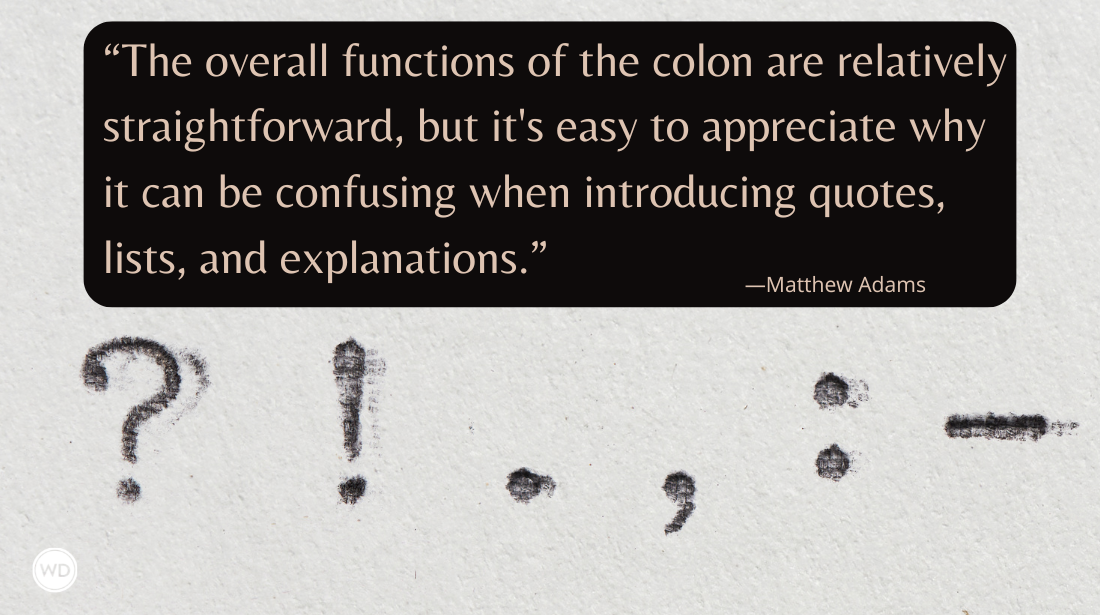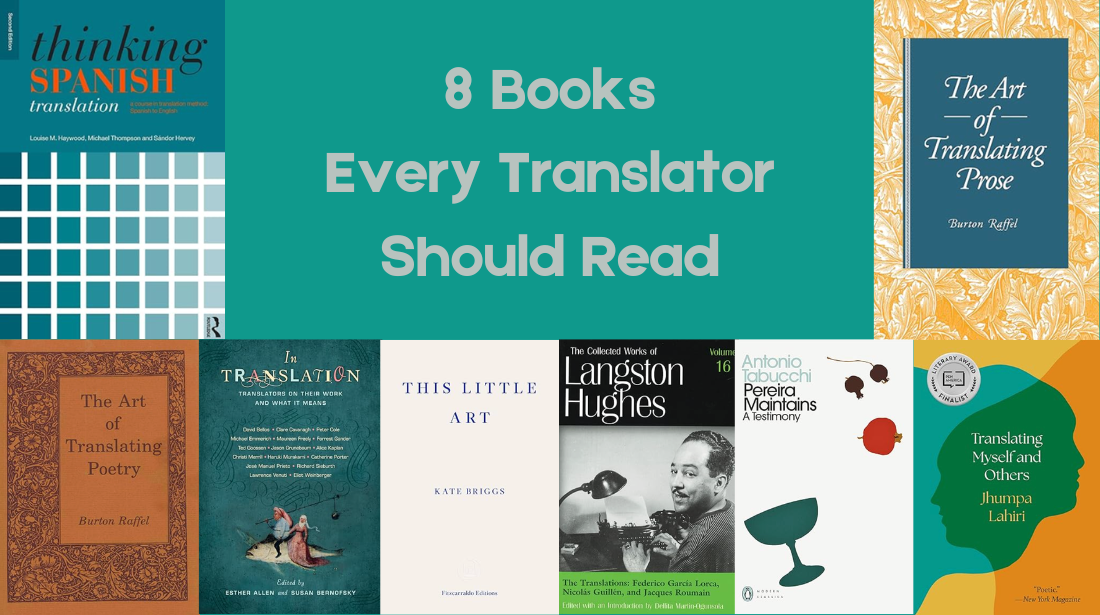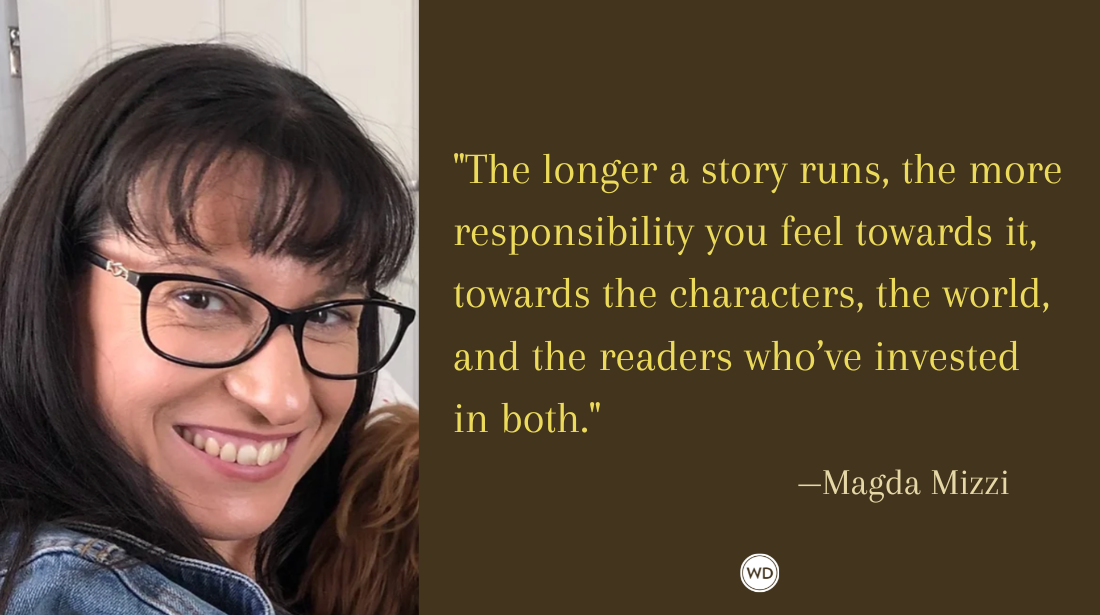A Conversation With Eric LaRocca on Writing Dark, Troubled Protagonists (Killer Writers)
Clay Stafford has a conversation with Eric LaRocca on writing dark, troubled protagonists, as well as thoughts on transgressive fiction.
In a literary world often drawn to tidy resolutions and redeemable heroes, Eric LaRocca dares to dive headfirst into the grotesque, the morally gray, and the emotionally raw. In this conversation, we explore what it means to write deeply flawed protagonists, how trauma shapes narrative voice, and why transgressive fiction matters now more than ever. From themes of grief and rebirth to the responsibility of truth-telling through horror, LaRocca invites us into the beautiful darkness he calls home.
“Eric, let’s talk about writing dark, troubled protagonists. What draws you as a writer to explore characters who are maybe fractured, morally ambiguous, or, some might say, beyond redemption? And what creative freedom do you personally find in writing them?”
“I’ve always been fascinated with the anti-hero, the morally gray, the complex, maybe even the problematic. I think that’s rich conflict—really rich drama. I spent so much of my life feeling like I was an outcast, feeling like I had no autonomy, that I was constantly on the outside, while others were doing things that I couldn’t access or achieve. Writing about people on the margins of society going through tragic loss, grieving, or doing questionable things feels freeing in many ways. It feels like putting an avatar on a Reddit profile and just saying whatever you want to say into the void. That, to me, is liberating. It’s cathartic, and I was able to release a lot of inner demons over the past 10 to 15 years by writing dark, complex characters. Writing these deeply flawed characters gives me an outlet to channel all that angst and anxiety that I’ve had since I was a teenager.”
“When you create a protagonist who may not be likable or even forgivable, what emotional anchor do you give the reader to stay invested in the journey?”
“It depends on the book. Each project has qualifications and things that you need to consider when writing. In At Dark, I Become Loathsome, I wanted to show Ashley at the beginning of the book trying to help people more than anything. I wanted to show that he was in a lot of ways wounding himself by reliving his trauma repeatedly, but there was selflessness to that. There was selflessness in burying these people alive and letting them experience a sort of rebirth in a way that he can never achieve. He’s able to give them a gift that they will never return to him, and I hope people come away from the book thinking that. I never like to direct people too much into thinking one thing or the other. I like to keep things ambiguous, but with this book, and he is self-centered in many ways, but I wanted to ground him as someone who’s been through so much trauma and loss, so I feel like it might be a bit excusable. But more than anything, I wanted to show him as a sort of conduit for transformation and rebirth for others that he will never know and savor.”
“Thematically, the whole book is about resurrection.”
“Yes.”
“People coming back out of the grave, the resurrection of his son, his wife.”
“It’s definitely about resurrection. It’s about fatherhood, identity, queerness, and fetishes. It’s about our obsession with unsavory and not easily digestible things. It’s a book about many things, and I wanted to explore all those in this book and be as unhinged as I possibly could be.”
“Is there a difference in your mind between writing a character who’s just unlikable and one who’s irredeemable? And how do you decide which path you’re taking?”
“It depends on what kind of book I’m interested in writing. For instance, there is a little vignette in the middle section of the book At Dark, I Become Loathsome that was always threaded into this narrative. That was always purposefully inserted. I knew writing it, I could never write a full-length novel with this character—I’m referring to the ordeal of Tandy and Victor, the blog couple that one obsesses about the other’s terminal diagnosis—and I knew that I couldn’t dedicate myself to writing a full-length book with him as the narrator because so much of his internal monologue would turn people off. I find it fascinating, but I know most people will probably not feel the same way I do. When I sent pieces of this to my agent, my agent confirmed what I had suspected and said, ‘You’re probably right to not pursue this in any way other than just a story within a story.’ There are some things that people struggle with, and I know that people have had many issues with that section of the book in general. Thankfully, it’s not super long, but it is one of my favorite parts of the book, and I think it correlates a lot with Ashley’s obsession with death and his fixation on the inevitable.”
“Do you ever worry that by writing from the perspective of a deeply damaged or destructive character, you risk the reader misunderstanding your intent, or even identifying with the wrong things?”
“That happens quite a bit. I worry about it because I hope readers understand I’m not endorsing any of the things that happen in my books.”
“Let’s hope not. Your books carry a lot of darkness.”
“I promise I’m not. It stems from how we teach literature in the classroom and how, ‘What do you think the author meant by this?’ or ‘Is this a composite of the author and his life?’ It stems from that. People have difficulty separating the artist from what they are writing about, but I worry about it. There’s nothing I can do about it. I know what kind of person I am. I know I’m a complex human being. I’m capable of both good and bad things and everything in between. Some of these people who form these parasocial relationships online with other people think they’re entitled to aspects of you, and they don’t know you. That’s just the way it is. I say unequivocally that I do not endorse the things that occur in my books, but I can’t prevent people from thinking certain things about me. I think it comes down to a point where I need to move on and focus on creating, writing, and telling stories that are true to my heart and what I’m interested in writing about.”
“And your characters certainly reflect that. I can see where the backlash from some readers can come, which is one of the problems of writing irredeemable characters. What craft techniques do you use to give a dark protagonist this depth without offering them excuses?”
“I suppose reading a lot of the transgressive literature and pulling from my own experiences with trauma and grief. There were moments early on in my life when I experienced a lot of loss in a very short period. For this book, I tried to portray Ashley in a way that was as human as possible, without making him seem removed and foreign and alien to readers. By doing that, I strive to bring in this very lyrical, poetic sort of prose in the book, reminiscent of a book like Exquisite Corpse by Poppy Z. Brite, one of my favorite books of all time. At least, I hope it’s lyrical, poetic prose. I think that sort of juxtaposition with the very graphic subject matter may be jarring for people at first, but then it becomes more digestible over the course of the narrative, and I think people are drawn to it. I know that I’m drawn to the work of Clive Barker and Kathe Koja, because those writers are portraying difficult subject matter, presenting it to me in a way that is a little bit more digestible because the prose is so flowery, and the writing is so sumptuous.”
“So, part of delivering dark characters can be the delivery method?”
“I tried to mirror that with this book, and I didn’t want this book to be so cold and unfeeling. I wanted a lot of emotion, and I think by filling the text with these rich descriptions, I livened it up a bit more. I feel like I brought out more emotion and paid homage to the Gothic literature I read at a very early age, which was sort of that expulsion, burst of energy, themes, repression, and all those beautiful things. I focused a lot on the actual prose and was methodical about what words I wanted to use to tell this story.”
“I felt empathetic towards just about all the characters that you created. How do you distinguish between empathy and accountability when dealing with such dark images?”
“Empathy’s more important than holding a character accountable for their actions. The author needs to understand their character and not look down on them. I’m turned off by books where I can tell the author is sneering at their characters, looking down at them, and almost inserting themselves and editorializing. It’s like, ‘Oh, I would never do this, but look at how disgusting and vile this particular character is.’”
“Hard to write those truthfully when you have that attitude.”
“It’s definitely hard to write truthfully and be as raw and vulnerable as possible. Great writing stems from vulnerability and being as unflinching as you can be on the page. I always say, write about your obsessions, what speaks to you, and what is constantly churning inside your head. I think so much of what this book talks about is that just because we have these very dark, explicit, intrusive thoughts doesn’t mean that we’re terrible people. I struggled with that for a long period, growing up with some very explicit, intrusive thoughts. I think what I want with this book is to explore that and showcase that these thoughts are normal. There’s empathy for these characters. These characters are not monstrous. We’re not monstrous. Ashley thinks of himself as vile and disgusting, but you want to hug him. He’s not as loathsome as he thinks he is, and I think I felt that way for a long time. Empathy is the root of writing exceptional transgressive fiction. If you have empathy, understanding, and compassion for your characters, it’ll show to your readers, making the narrative and the work in general just so much more explosive and impactful.”
“Have you ever written a character so disturbing or broken that the character disturbs you?”
“I’ve written several. I have a book coming out later this year with Titan Books. That’s the first novel of my Burnt Sparrow Trilogy, and one of the book’s characters is completely loathsome and vile and does some very unspeakable things. I tried to weave into the narrative explanations and context for why he’s so damaged and broken. We’ll see if it lands. We haven’t sent it out to many readers yet, but many authors who have read it to provide quotes have been positive, so that’s a good thing. As far as At Dark, I Become Loathsome, the section with Victor and Tandy disturbed me. I felt uncomfortable while writing it. I felt I was writing something that I shouldn’t be writing, which let me know that’s exactly what I should be writing, in a weird way. That’s what quality transgressive literature is to me. It’s forbidden. It feels like you’re reading something you should not be reading, or if you’re writing it, you should not. Like, please don’t look at my hard drive. You know what I mean? I’ve always been interested in the graphic nature of transgressive literature. I think that’s where quality, extreme novels stem from: that level of, should I be enjoying this? Should I hate this? What’s my reaction? There’s ambiguity around people’s reactions to books like these, but that’s fine. It takes a long time for people to process certain things, but I find it exhilarating.”
Check out Eric LaRocca's At Dark, I Become Loathsome here:
(WD uses affiliate links)
“What do you think writers can learn by writing protagonists who cross these moral lines? And what have you learned about yourself through doing it?”
“Writers can learn much about themselves by writing deeply flawed, complex characters. They can unearth dormant things and finally poke around in those wounds and see how they’ve transformed and changed. Writing these characters and this book taught me that I’m not as flawed as I thought. I’m not as vile and monstrous as I originally thought I was when I was growing up, because I grew up in a very rural, isolated town. I was sheltered growing up, and I thought there was something wrong with me. So much of my existence was spent hating myself and wishing I wasn’t different, wishing I could be like everybody else. But now, writing this kind of transgressive extreme fiction, I am liberated. I feel excited and delighted to write as fearlessly as possible and express myself in ways I didn’t have the confidence to do originally.”
“Is redemption something you believe every character should be offered? Or do you sometimes write stories where the lack of redemption is the point?”
“Especially in a book like this, there is a lack of redemption, but there is a point to it. I’m inspired by the work of Albert Camus, a famous French novelist and philosopher who argued that life is meaningless and nihilistic. His novella, The Stranger, very much influences this book. I don’t think there’s redemption in place for every character in my books, but that’s the point sometimes. Redemption just doesn’t come, and that’s almost more horrifying and more upsetting for people to stomach. I do like to provoke, and I do like to unsettle and disturb, and my fiction is not meant to comfort. People can find comfort in it.”
“In the dark characters…”
“People have, which I’ve been so grateful for, but I don’t set out to comfort with any of my fiction. I set out to explore the human condition and, more importantly, stretch the line of what is acceptable to publish and what is not.”
“You’ve got some hurtful, manipulative, cruel characters here. When you write hurtful, manipulative, brutal characters, how do you make space for emotional truth without just turning the story into some spectacle of suffering or atrocities? You’ve done it well. You preserve that emotional truth. How do you make space for that?”
“It comes back to having empathy for the characters. It comes back to knowing your characters more than anything and letting them hold space in your heart and mind. Maybe they have conversations with you while you’re doing the dishes or the laundry. Understanding your characters and their motivations is supremely important for any fiction, especially transgressive fiction, where it can turn into just a litany of suffering and unfortunate things. That said, I do enjoy a little bit of punishment with fiction. I enjoy fiction that is nihilistic and bleak. I don’t go to that kind of fiction all the time because it’s not great for my mental health, but I think there are great excuses to savor that kind of fiction.”
“What do you hope writers understand about the value and the responsibility of letting their characters go to truly dark places on the page?”
“The value of being unabashedly free and truthful. Horror, especially, is a truthful genre. It’s the genre that forces us to confront the complexities of being alive, being human, suffering, and being subject to entropy and decay. Horror forces us to look at the car wreck as we pass it on the highway, and it tells us not to look away. There’s value in recognizing all the flaws of our humanity and our society’s flaws. I’m interested in horror with a point, a social purpose, or something to say. That’s when horror becomes more sophisticated than just the proverbial stalk and slash subgenre, which I enjoy. I enjoy slasher films now and then, but at the end of the day, I want something more elegant and sophisticated. I think readers appreciate that as well. So much horror is rooted in fascinating examinations and dissections of our current culture, and horror can shift the narrative in many ways and make people reconsider things, maybe reconsider how they treat people, interact, and react to certain things. I think horror and science fiction do that quite a bit. I’m honored to write every day and tell stories. I hope any writers reading this and encountering this piece come away from it inspired to be themselves, be complex, let themselves be as flawed and weird as possible, and explore, like the nether world of grotesquerie. Just be unabashedly you. I think that’s the most important thing any writer could do. Don’t label yourself as ‘the next’ anything. You’re the you. You should be proud to be who you are and write the visions only you can create.”
“And write as dark as you want to be.”
“Exactly.”
_____________________________
Eric LaRocca (he/they) is a 3x Bram Stoker Award finalist and Splatterpunk Award winner. He was named by Esquire as one of the “Writers Shaping Horror’s Next Golden Age” and praised by Locus as “one of strongest and most unique voices in contemporary horror fiction.” He currently resides in Boston, Massachusetts, with his partner. https://ericlarocca.com/








